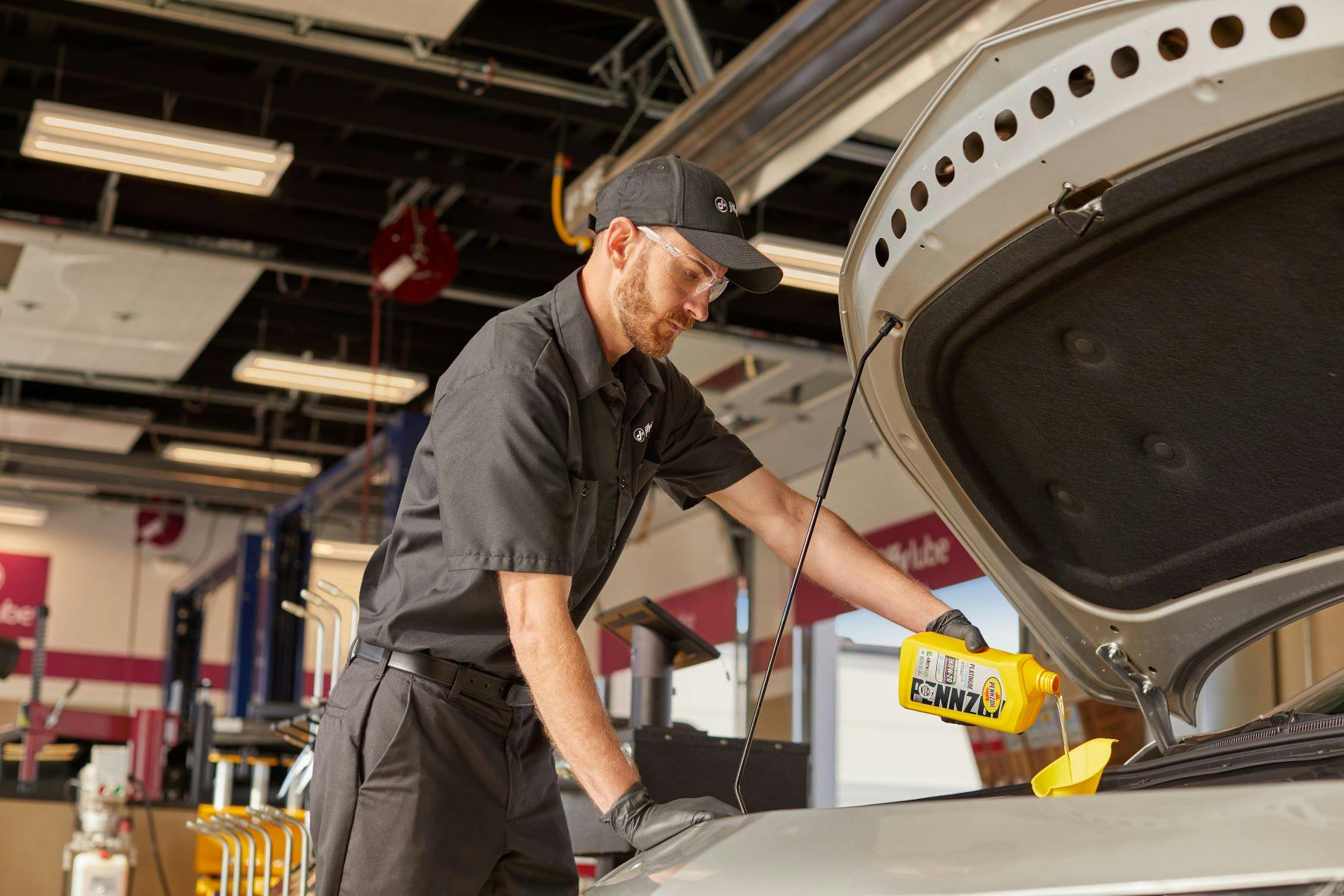Let’s be honest: between taking care of your work, your home, and figuring out your social plans, you’re not thinking about your brake fluid too often. But it helps to know a few quick facts so that you can keep your brakes—and your entire vehicle—in good working order. Consider this blog post your “Brake Fluid 101.”
1. YOU SHOULD REPLACE BRAKE FLUID EVERY FEW YEARS
You’ve probably heard that oil is the lifeblood of your engine. Basically, it’s what keeps you going. Well, brake fluid is just as critical for making sure you can stop. And the best way to find out how often to change brake fluid is to follow your manufacturer’s recommendations. Some manufacturers say you should replace your brake fluid every two years. Others recommend every three years, or every 45,000 miles. Some manufacturers make no recommendation at all. If there’s no recommendation in your vehicle’s owner manual about how often to change brake fluid, talk to the trained technicians at Jiffy Lube® for a recommendation.
2. CONTAMINATED BRAKE FLUID CAN AFFECT HOW YOUR BRAKES OPERATE
All modern vehicles use hydraulic brakes to slow and stop. And while a hydraulic brake system is a sealed system, the brake fluid (also called hydraulic fluid) can become dirty and contaminated after several years of normal use. This can occur as the additives in your brake fluid simply wear out over time, or as moisture finds its way into the hydraulic brake system and begins to affect the chemistry of the brake fluid. In any case, contaminated brake fluid can start to have major effects on how your brakes perform. For example, you may notice squishy brakes as you step on the pedal, or that your vehicle does not stop as quickly when trying to make a hard stop. If you notice symptoms like these, it’s time to bring your vehicle to Jiffy Lube® for a brake fluid check.
3. THE BRAKE FLUID CHANGE COST IS WORTH IT
If ignored, contaminated brake fluid and moisture in your fluid lines can cause greater damage to your vehicle. This includes internal corrosion on rust on your brake lines, brake calipers, and other brake parts that can cost several hundred dollars to replace. Thankfully, you can simply replace brake fluid and likely avoid these issues. And replacing brake fluid (also called a “brake fluid flush”) usually costs $100 or less. Plus, the technicians at Jiffy Lube® can recommend the type of brake fluid preferred by your manufacturer.
4. YOU CAN PERFORM YOUR OWN VISUAL CHECK NOW
Knowing how often to change brake fluid can also come down to the visual appearance of the fluid. And it’s relatively easy to check the fluid yourself. Open the brake fluid reservoir on your vehicle. (It’s usually under the hood, attached to the top of the master cylinder.) Your brake fluid should be clear or may have a slightly orange, blue, or green tint. If the fluid looks dark or murky, you should bring the vehicle in for service. Or if you’re not sure about the color of the brake fluid, head to your local Jiffy Lube®. The trained technicians can perform a full brake fluid check, including testing for moisture and copper content. We recommend getting this test at least once per year, or even more often if you live in a region with high humidity.
The best tip of all? Bring your vehicle in for a Jiffy Lube Signature Service® Oil Change and the brake fluid check is included. Jiffy Lube® technicians know what to look for and how often to replace brake fluid in your type of vehicle. Plus, since they’re already working under your hood for the oil change, it’s easy for them to replace brake fluid if needed. Most importantly, you’ll get the peace of mind that comes from knowing that you’re taking the best care of your vehicle.

READ MORE ABOUT CHANGING BRAKE FLUID
Learn how to handle other routine brake maintenance and find out how long brake pads last.
Get the inside scoop on squeaking brakes and learn what to do about this common problem.
Please note: Not all services are offered at each Jiffy Lube® location. Please check with your local Jiffy Lube® service center or visit jiffylube.com for specific services offered.


